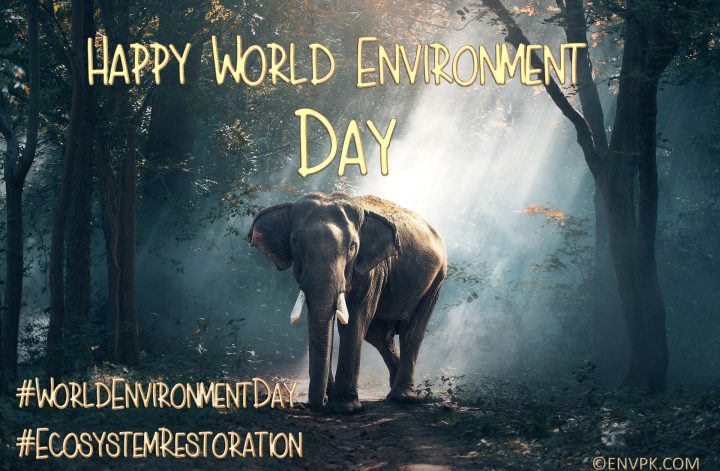Introduction:
The Undergraduate degree for Environmental Science is pretty diverse because of the vast ranges of topics and subjects it can potentially cover, however, this is also exactly why many subjects may be taught in conjunction with some other subject or maybe not at all depending on the need and application or relevancy to the geographic region of the country. For instance. subjects like Environmental Ethics or Oceanography won’t probably be taught in Pakistan until much later. But, there are some core subjects that almost every BS Environmental Science degree will cover in Pakistan at the undergraduate level even if the order of semester in which they are taught and the names of the subject itself varies from university to university.
Related: Top 12 Environmental Science / Engineering Universities of Pakistan
Also check out: Branches of Environmental Science – Interdisciplinary Field
List of Subject courses taught in BS Environmental Science Degree in Pakistan:
- Literary Reading of Grammar: Syntax– This will basically fulfil the English requirements and polish up your grammar and comprehension skills that would come handy in the future for research articles and journal readings.
- Introduction to Environment
- Environmental Geology– the study of the basic structure of the earth from its land masses to the various rock formations, types of rocks and minerals present in the Earth.
- General Chemistry
- Principles of Life- I : this subject deals with the basic principles of life such as cell theory, evolutionary dynamics and how different gene makeup of humans can be effected by other external factors. It is essentially general Biology but with a mix of chemistry in between.
- Basic Environmental Chemistry
- Environmental Pollution
- Islamic Education
- Principles of Life- II
- Mathematics
- Basic Study and Writing Skills
- Pakistan Studies
- Introduction to Computer
- English Verse and Communication Skills- I
- Environmental Physics
- Fundamentals of Ecology
- Pollution Control Technologies
- Statistics
- Environmental Microbiology
- Environmental Profile of Pakistan
- Applied Ecology
- Environmental Toxicology: This subject deals with the various toxic chemicals and drugs in our natural and artificial environment (created by us in labs or industrial settings etc.) that can harm our cells and human beings in general if they enter our system. For more information check out: What Is Environmental Toxicology And What Are Its Branches?
- Climatology: Study of the climate, its various climate classification systems by zones, climatic models etc.
- Environmental Monitoring: Monitoring for environmental damage, pollution, sampling for waste water, land, air and soil. Different monitoring devices and their use, monitoring and sampling tools and methods are also covered in this subject.
- Environmental Economics: Teaches how environment and economics are not separate and are in fact co-related. Environmental protection and conservation goes hand in hand with how our economic policies should reflect that.
- Public Health & Environment: Different diseases, modes of transmission, vectors and how animals and humans receive and transmit diseases that lead to epidemics or widespread diseases in an area.
- Remote Sensing and Geographical Information Systems (RS&GIS)
- Natural Resource Management: the subject covers how we can manage our natural resources like forests, livestock, pastures, natural streams and rivers along with how we can develop and make an efficient and sustainable resource management plan for a specific industry or system such as fisheries industry or for the sake of forest protection for instance.
- Biodiversity and Conservation
- Energy Resources
- Environmental Biotechnology
- Environmental Management Systems
- Occupational Health and Safety (OHS)
- Environmental Impact Assessment (EIA)
- Research Methodology
- Analytical Techniques / Analytical Chemistry
- Soil and Environment
- Solid Waste Management
- Environmental Law
- Climate Change
- Disaster Risk Management
Also read: Possible Careers And Jobs After Environmental Science Degree
There are a lot of other optional subjects that universities and the respective departments may offer that differ from time to time and also depend on the number of students or availability of the teacher. Such subjects are called Electives and they may include subjects like- Livestock Management, Agroforestry, Sustainability, Geography, Conservation Biology, Basic Environmental Engineering, Microbial Ecology, Hydrology and Waste Management etc. Sometimes one of these may even be taught to students who exclusively opt for Internships as a way to fulfil their credit hours.
You may also be interested in: Environmental Science vs Env Engineering – Which is Better?
Also check out: What is Environmental Science and Why is it Important?
We hope you liked this post! Please comment below if you have any suggestions, comments or feedback! We at #envpk love hearing from readers! Thanks!




